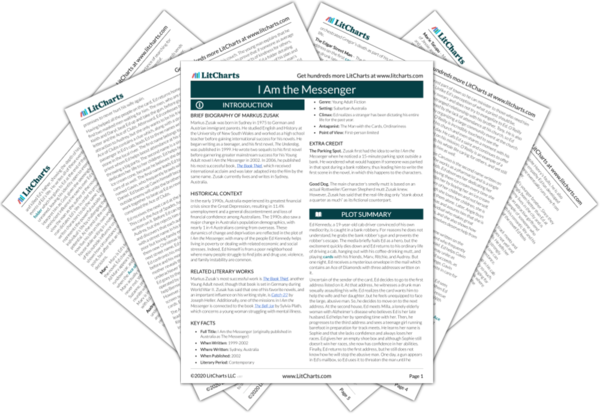At the end of the novel, the man who has been sending Ed on his missions gives Ed a file detailing every step of Ed’s own life for the past year, right down to the very questions Ed is currently asking the man. The file represents the outside forces that dictate Ed’s life. Given the file’s almost mythical ability to determine exactly what Ed was going to do, one could interpret the file as a divine plan Ed has no control over. One could also view the file, with its careful record of Ed’s life, as the novel itself, which again would negate Ed’s agency in his own life; it would make him a character controlled entirely by the decisions of the author. However, the file’s record of events ends directly after the man says goodbye to Ed forever. This symbolizes a withdrawal of control by whatever greater force has been dictating Ed’s life. After Ed finally gets together with his longtime love interest, Audrey, he desperately searches the file for a record of their relationship. When he can’t find it, Audrey says that it’s because this moment in their lives belongs to them alone. This conclusion suggests that circumstances might dictate one’s life up until a point, as the file has dictated Ed’s life thus far, but how one moves on from those initial circumstances is their choice alone.
The File Quotes in I Am the Messenger
“I’m looking for this,” I tell her. I wave my hand at both of us. “I’m looking for you and me, together.”
And Audrey only crouches down. She kneels with me and places her hand on mine to make me drop the papers.
“I don’t think it’s in there.” She said softly. “I think, Ed…I think this belongs to us.”

Unlock explanations and citation info for this and every other I Am the Messenger quote.
Plus so much more...
Get LitCharts A+









